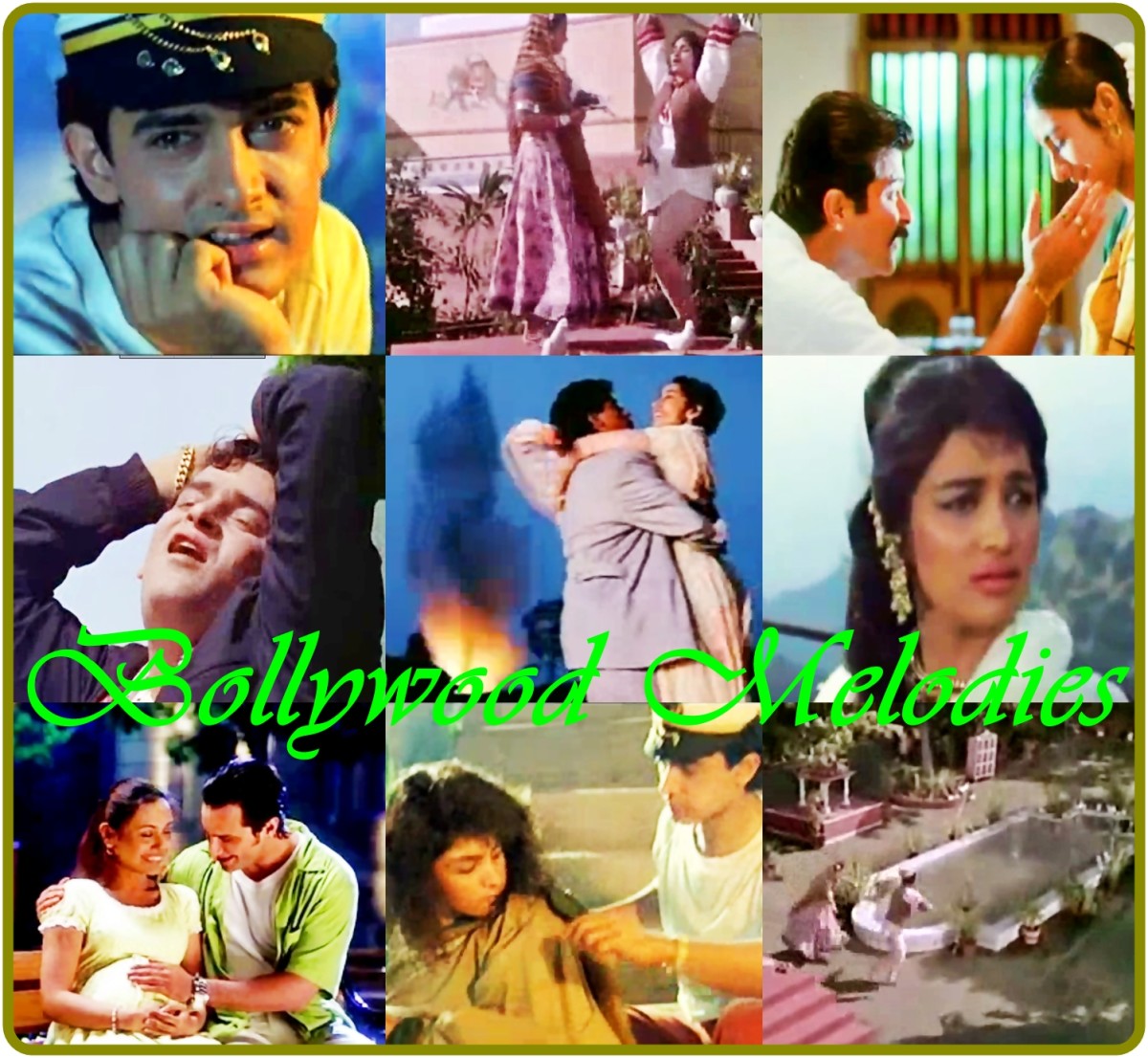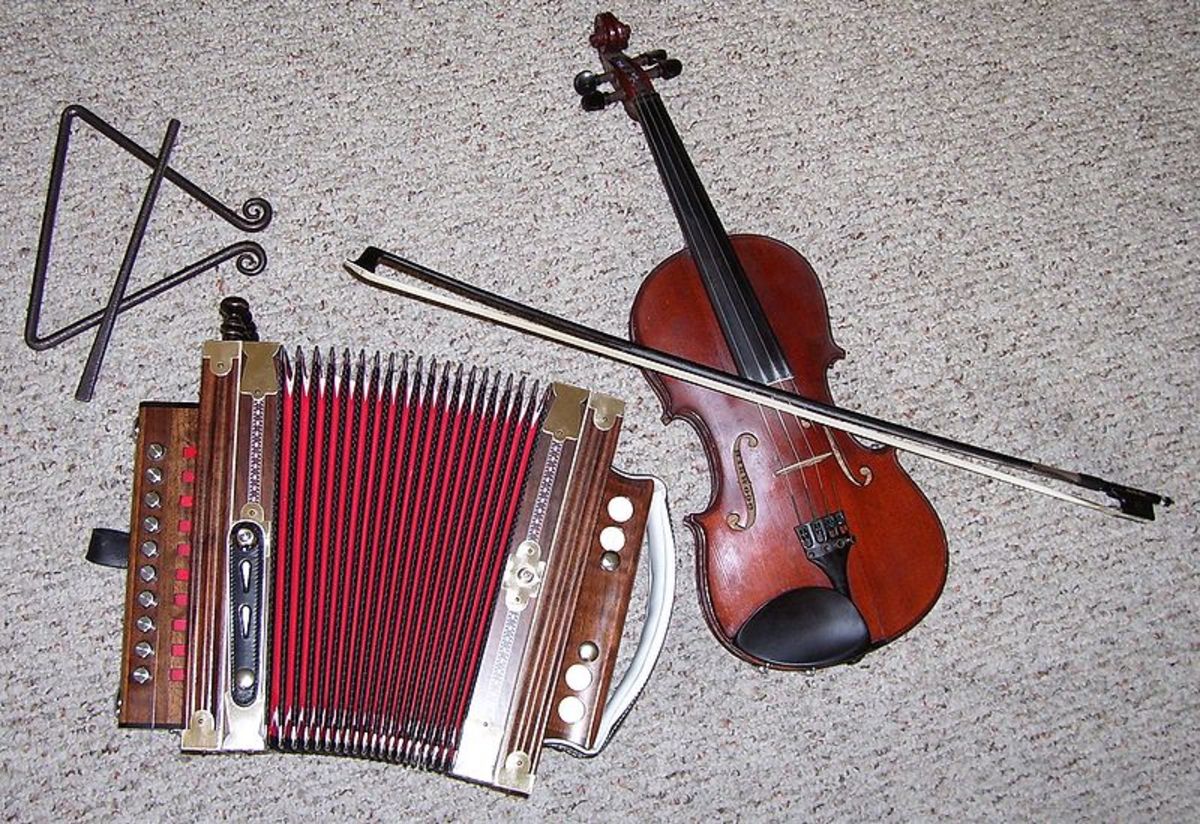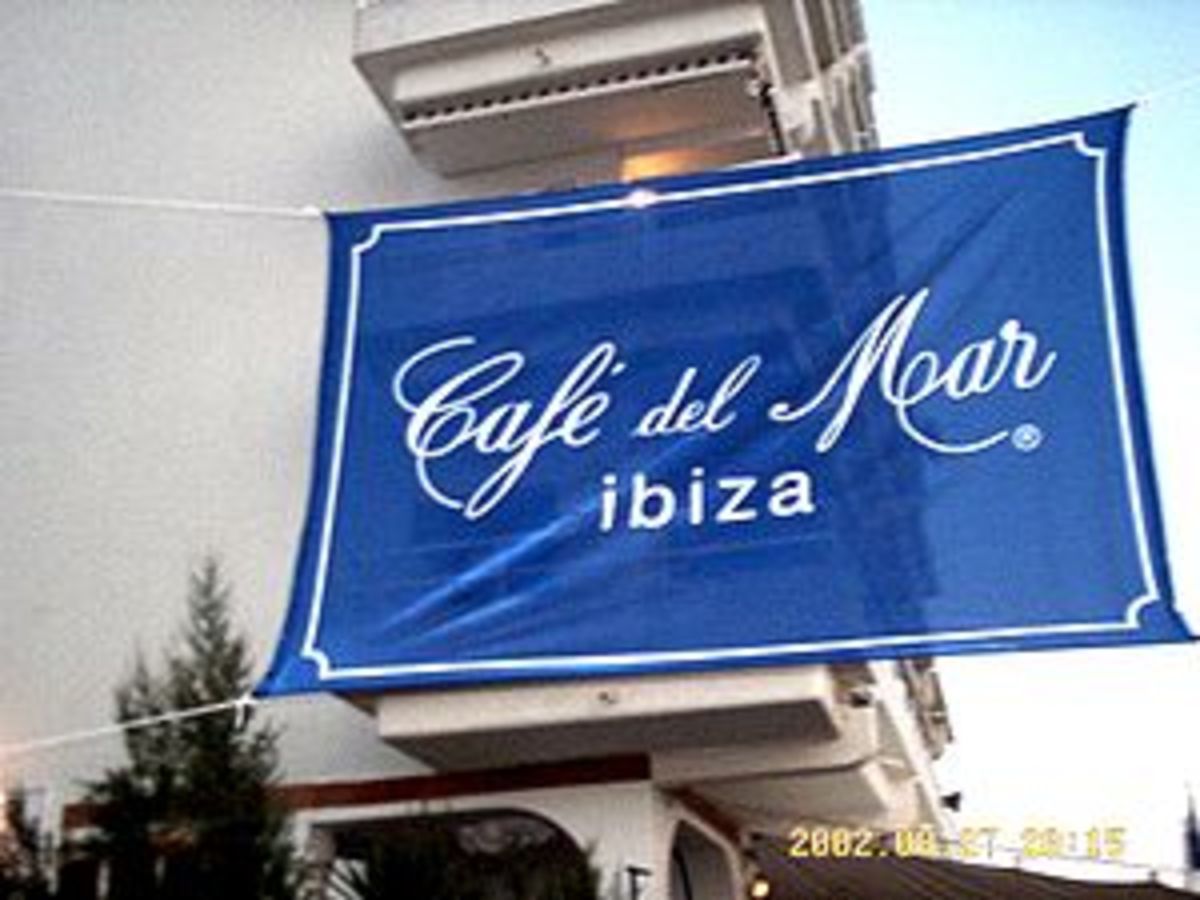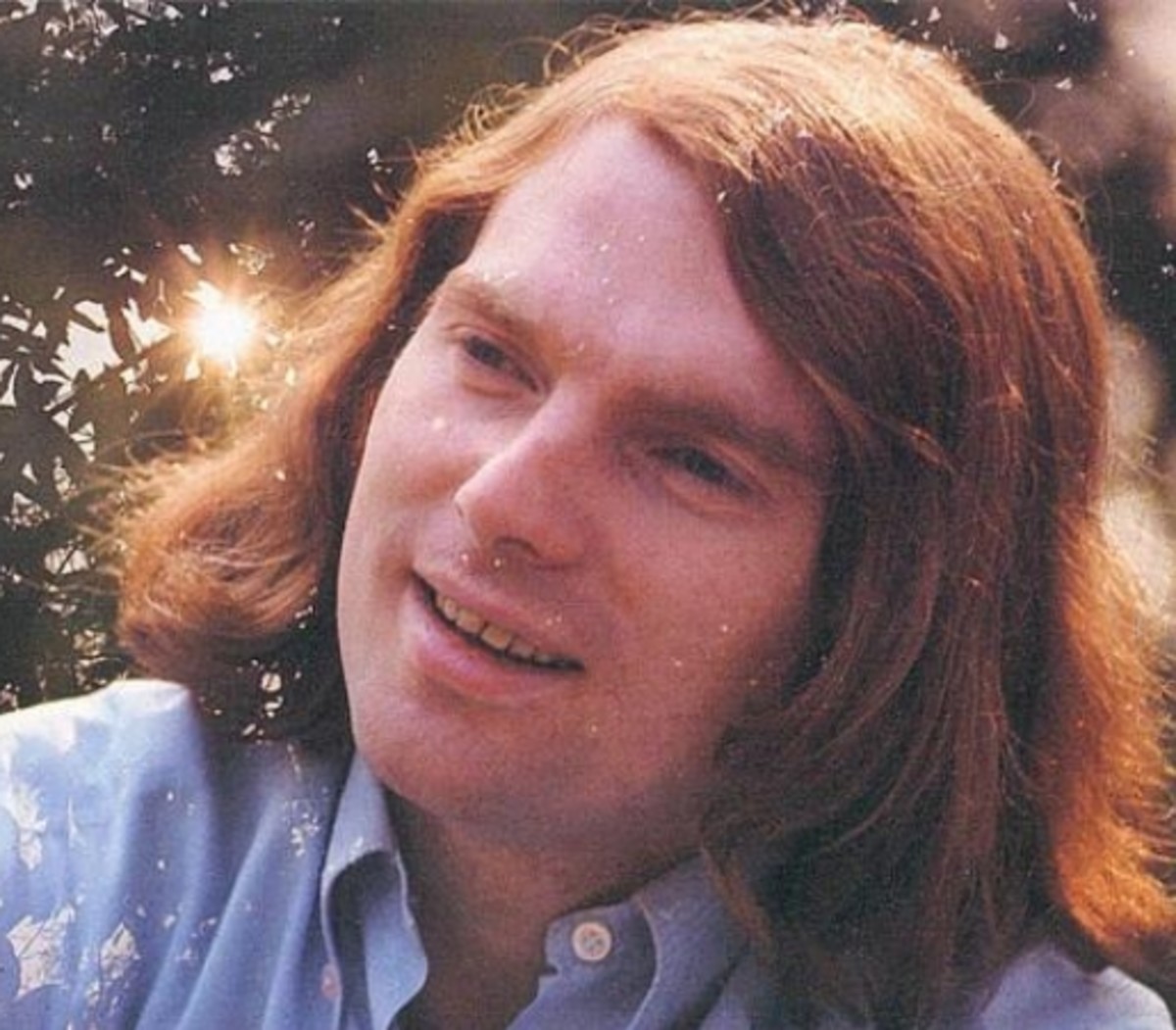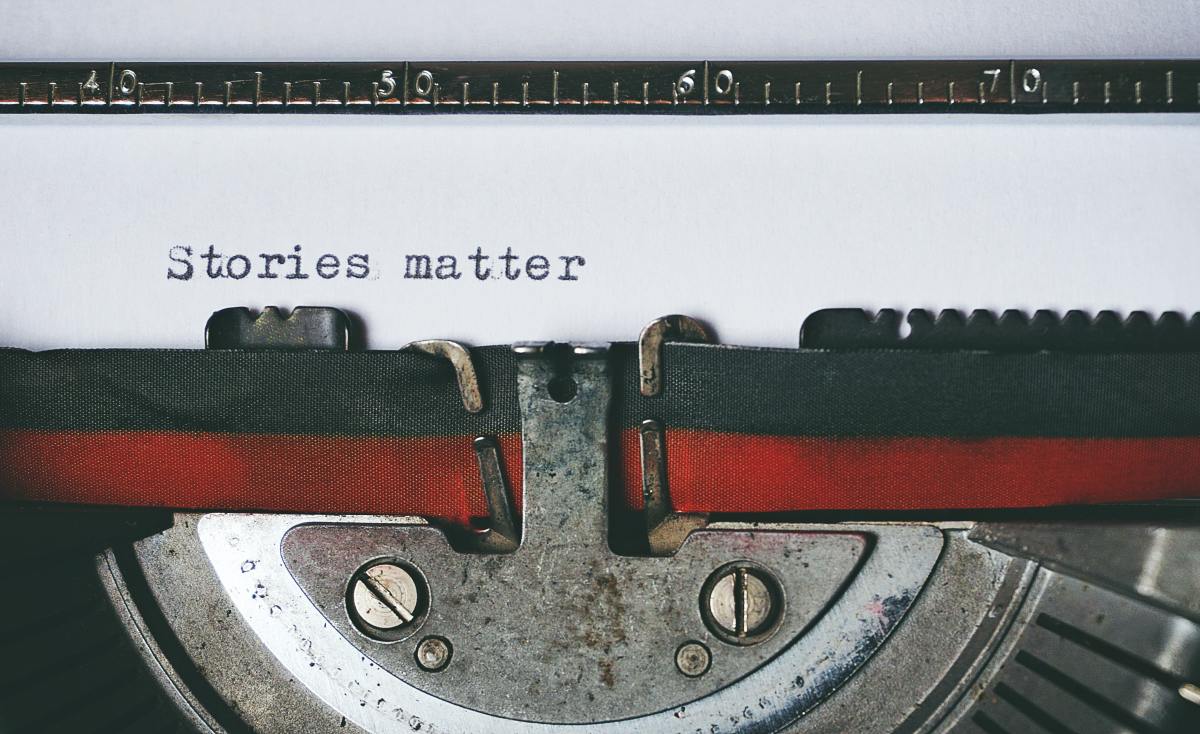How to Make a Song
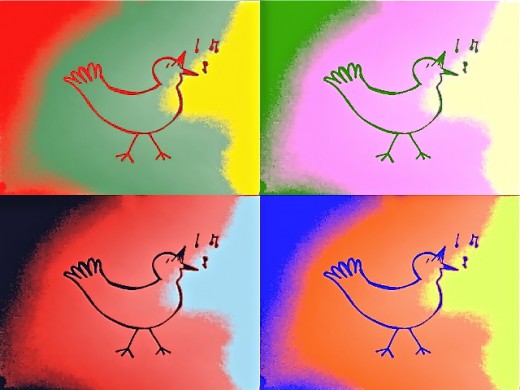
~Take a melody, some words...a burst of inspiration and stir gently~
That's all there is to it. No, not really...well it might be that easy for some, but not for others. Just so I don't feel like a total fraud, I should say at the outset that I've never sold a song, had one published nor had one performed by anyone of note. I'm just an enthusiast musing on the process and writing songs ( or trying to) is a relatively new obsession...and this is a long article. So if you want to get out now, while there's still time, I'll understand.
Why Write Songs..?
Of all the wordy arts, perhaps song is the one that can be most quickly felt...without thinking and without processing and judging. It just kind of floats into the consciousness of the listener. Like the music of a bird song, the beauty is in the sounds, and the meanings are in the melodic expression, thus even songs in alien languages can resonate emotionally with the listener.
The Dangers
The power of music to persuade, inspire and unsettle has long been noted. The ancient Greeks were suspicious of it:
Musical innovation is dangerous to the State, for when modes of music change, the laws of the State always change with them.
Plato (428-347 BC) The Republic
The Spartans were moved to kept their music uncorrupted and plain by limiting the number of strings on their lyres, which meant that musicians could not perform the “subtler more dangerous modes”. Cicero recorded that when a famous musician visited Sparta he was observed to be unsettling the fighting men with his beautiful music. The lyre was inspected, and he was found to have added a number of new strings to increase versatility. It was subsequently confiscated.
Today there are parent groups, church organisations and concerned citizens who are devoted to decrying the corrupting influence of song, particularly its effect on vulnerable youth and indeed the emergence of rock 'n roll in the twentieth century was interpreted by some to signal the end of civilisation.
If music and song is dangerous it is because it connects with human emotion in some fundamental way. The language of song is rhythmic, a kind of magical incantation that has been with the human race for as far back as anthropologists can imagine. Rhythmic language, especially when paired with melody, has the power to stir our feelings and rattle our equilibrium on a non-rational level.
Consider the jingles of patriotism, and the chants of religion-and of course the pervading power of rhythmic language did not not escape the ear of advertisers, particularly in the middle of the twentieth century, when the rhyming jingle was at it's zenith:
Winston tastes good like a cigarette should
Dangerous, persuasive, inspiring, corrupting - song then, can be a powerful emotional driver.
Catchy
The Pleasures
We all have a song in us and many of us would probably, at one time or
another, have considered writing a song or felt that we could write a
song. Of course it's true, anyone can write a song, though producing
one that will connect with others is more elusive a task. As George
Bernard Shaw once remarked, “hell is paved with musical amateurs”.
I've
written a small heap of songs, none of which I consider come even remotely
close to 'hitting the mark'; a condition that sometimes causes
frustration and sometimes despondency-but not for too long, as I'm
always drawn back to the quest. Even professional songwriters have
remarked that they can write a hundred songs but only one may achieve
that universal connection.
I'm at the beginning of a long process of experimentation and perseverance and even if it takes years or I never produce that one great song, the pleasure of the process is reward enough. Wordsworth described poetry as “emotion recalled in tranquillity' and the same could be said of song. Song writing is my emotional catharsis- a release valve for unresolved feelings and a salve for old wounds. There is something about expressing your own unique perspective through the immediacy of song that is deeply satisfying.....even if you are the only person who understands it.
Unlike prose writing, songs do not require complex expositions; lyrics may be sparse or full, cryptic and obscure, fanciful, deeply personal and even nonsensical; whatever comes to mind, as long as they connect harmoniously with the ear. Who can make sense of the lyrics from Nirvana's Smells Like Teen Spirit, a hugely successful song?
A mulatto, an albino
A mosquito, my libido
Yeah, yeah, hey
A
song doesn't have to make sense; it just has to sound good. Of course
prose can offer vistas that songs cannot and one form of writing can
energise the other. Kate Bush's phenomenally popular 1978 debut single
Wuthering Heights was drawn from Emily Bronte's novel about wild
passions on the English moors:
Cathy oh Cathy oh come home
I'm so co-o-o-old
Similarly Perry Como's Catch a Falling Star
was reputedly inspired by a line in a John Donne poem, 'go and catch a
falling star'. Such cross-fertilization is not uncommon -the Zombies A Rose for Emily is from a William Faulkner story, Radiohead's Banana.co is based on One hundred Years of Solitude by Gabriel Garcia Marquez and Suzanne Vega's Calypso is based upon one of the scenes from Homer's Odyssey.
So why am I writing a how-to hub if I haven't succeeded in producing a great song? Good question. Well that is something that probably cannot be taught. anyway.. it's something of a mystery why one song should connect universally where others have failed. Admittedly, this is from an amateur's perspective...in my quest though, I have done some study and picked up a few pointers about song construction which have been helpful to me. The creative talent bit is up to you...

The Craft
The elements of a song can be roughly broken down into subheadings:
Concept:
Most songs have a narrative or at least a theme forming the 'essence'
of the song. A song theme can be about anything at all...sometimes
something really unlikely. Joe Dolce, an accomplished musician, hit a universal note with
listeners writing about disaffected immigrants, in “Shaddap Your Face”...a song that earnt him millions of dollars.
However writing for a particular genre might be more confining; if
you're a hard-core hip hop artist your credibility might be at stake if
you start getting into a hearts and flowers concept. Similarly country
and Western songwriters probably wont be interested in concepts
featuring urban issues and neither will their audience.
Good
song writing requires focus and clarity and usually one cohesive idea,
consistent throughout the song, is better than a lot of disjointed
lyrics, no matter how poetically inspired they are. Some of the most
popular song concepts, apart from the universal 'love' theme which is
by far the most commonly used, have included friendship, escape, loss,
hard times, family, protest and 'the times' -past present an future.
Chords:
Musical text books describe chords, which is short for accord, as
triads being composed of three individual notes, or more technically:
"tertian sonorities, constructed of thirds, relative to an underlying
scale. Two note combinations are commonly referred to as intervals,
technically known as dyads”. (Benward & Saker) Along with melody
and rhythm, chords are a part of the three vital elements of music.
In the music theory things get a lot more complicated than that. To me
however, chords are just positions on the guitar which, given the right
progression, form the accompaniment for a melody. There are literally
thousands of chords and I've only mastered a small amount. It can be
very absorbing experimenting with chord progressions, discovering those
which form a harmonious sequence and those that jar and sometimes a
particular sound will evoke an image or a memory that can spark a
lyrical idea.
Shaddap Your Face-Joe Dolce
Melody:
“A painter paints pictures on canvas. But musicians paint their pictures on silence.”
Leopold Stokowski
The melody of course is the tune and no matter how good the lyrics are
if they don't meld with the melody the song will collapse structurally.
This is perhaps the most challenging part of the songwriting process
for a novice and yet it is also the most intriguing; it's awe-inspiring
to imagine the infinite note combinations that can be produced and
combined to create unique sounds. The language of music is mysterious
to people like me, who can't read it, yet I [along with almost everyone
else], am still able to respond to a melodic line and judge whether or
not it is harmonious or discordant. I find a tune entirely by ear,
experimenting trial and error style with chords on a guitar.
There is some dispute among professional songwriters over whether or
not the capacity to read and write music is essential to the art of
song writing. Certainly those who can't are at a great disadvantage,
yet before the 12th century virtually no music was written down and a
semi-quaver is as alien as to some native cultures as e=mc2, yet they
still manage to produce songs. It's possible to acquire a deeper
understanding of music without formal training as many wonderful
musicians could testify to [though this should not be used as a
rationalisation for being too lazy or obstinate to learn to read
music]. The capacity to create music does appear to be innate to
humans, whether they are musically literate or not. I 'm comforted by
Elvis Presley, who once famously said; “I don't know anything about
music. In my line you don't have to”.
An important aspect of
melody I have learned about is pitch – a melody is a sequence of notes
strung together and the pitch determines the shape and contour
depending on how high or low it sounds -a melody that remains on the
same pitch will be very dull and monotonous and typically melodies have
arches that rise and fall. The motion is determined by the duration of
a note and how quickly it goes up and down. One last important feature
of a melody is musical phrasing. As musician Catherine Schmidt-Jones
describes: “Melodies are often described as being made up of phrases. A
musical phrase is actually a lot like a grammatical phrase. A phrase in
a sentence (for example, "into the deep, dark forest" or "under that
heavy book") is a group of words that make sense together and express a
definite idea, but the phrase is not a complete sentence by itself. A
melodic phrase is a group of notes that make sense together and express
a definite melodic "idea", but it takes more than one phrase to make a
complete melody.”
(connexions)
Once a melody for a new song
is discovered, trills and slides and other embellishments can be added
to the basic tune to makes the sounds more complex and layered and the
introduction of other instruments playing the melody together in
harmony often enriches the whole composition. Melody very much sets the
mood for the lyrics -light and gay, sad and wistful, heavy and thumping
or odd and quirky.
Throw Your Arms Around Me-Nick Seymour
Beat and Rhythm
The beat, or tempo is the pulse of the
song and gives it it's 'feel' and the timing, fast or slow contributes
to mood. A fast beat can drag you onto the dance floor and a slow one
may draw you into a reflection. Beats can be unstressed or stressed;
and rhythm is the beat that different instruments create; guitar,
keyboards, bass, drums etc. and adds a rich dimension to music and it's
the silences or rests between notes that help create mood and
complexity.
In rock 'n roll the melody often has a backbeat,
accentuating the offbeat and is usually supplied by the snare drum but
as I have no band to play with I haven't concerned myself too much with
backbeats, although there are software programs were such accentuations
can be added if you have the instruments. Software instruments are
available but these tend to sound, as one would expect, synthetic and
unless that is a desired effect, while handy, they aren't ideal.
Although these sophisticated technological tools can offer many
benefits to the songwriter, many professionals will tell you that
ultimately there is no substitute for getting together with real life
musicians and experimenting. Having said, if you've got all the gear,
some highly produced music is fantastic. As I write, I am playing Kanye
West's very creative, My Beautiful, Dark Twisted Fantasy, and it is great listening...electro melancholia, as described by Rolling Stone.
Style
Punk, rock, pop, classical, broadway, swing,
gothic, new-age, indie, alternative, folk, soul, blues, r&b,
country, rap, jazz, hip hop, bluegrass -the list of musical genres is
extensive but superficialities aside, when it comes down to it, it's
the beat and rhythm that will often determine the style, at least in
the popular song genres. When creating a song, I never consciously
write to fit a category, though perhaps that has more to do with
inexperience than a spirit of independence. I attempt to write the kind
of music I enjoy listening to and I am of course, the product of a
stream of influences. If I had to define my favourite style it would
probably fall under the broad umbrella of folk/alternative.
What appeals to me most about this genre, apart from its intimacy, is
it's authenticity, as evidenced below in the Missy Higgins video.. In the current musical climate, so many songs are
slickly produced in recording studios using all manner of synthetic
enhancement, it can be hard to detect the human element. While these
songs are as smooth as polished ice and easy enough to listen too, they
lack the rawness that can really give a song its personality. In any
creative endeavour, developing a distinct style can be of great
benefit, as your work becomes readily identifiable but even better is
developing a distinctly original style. It's certainly possible to
write within a particular genre and still be original, everyone is an
original, with their own unique method of expression that will only be
crushed by slavishly trying to emulate the work of others -a disaster
creatively and probably commercially too as who would want an imitation
when they can listen to the real thing?
The Wrong Girl-Missy Higgins
Lyrics:
Coming up with lyrics is very much an individual
process and I doubt there could be any formula for success. I am
however, beginning to learn the value of organisation; breaking down
the concept or the songs 'story' into parts and then trying to capture
the whole thing in one sentence helps me identify what can be discarded
and what should be retained in order to maintain a consistent theme .
Many professionals advise keeping your audience in mind at all times
while writing in order to better “target” them. Perhaps this is good
advice in some circumstances – writing for children for example. But
I'm not trying to write for any particular audience or in any
particular genre and the idea of conforming your ideas into what an
imagined audience might like is unappealing, nor do I think it works.
The most successful artists in the world have been highly original, not
from being conformist or trying to please the fickle majority. Even if
I fail miserably and my songs never connect with anyone
at all, at least I will have been sincere. As a great writer (Orwell) once observed
“for a creative writer possession of the truth is less important than
emotional sincerity.”
Many succcessful songs tell a story. In the video below Kate Nash sings about the crumbling of a relationship. It's a common theme but she tackles it in an original way:
Foundation-Kate Nash
Orwell also had some good advice for the songwriter, although it was intended for writers in general: “A scrupulous writer, in every sentence that he writes, will ask himself at least four questions, thus;
1. What am I trying to say?
2. What words will express it?
3. What image or idiom will make it clearer?
4. Is
this image fresh enough to have an effect? “(Politics and the English
Language, 1946)
One of the biggest difficulties encountered in
writing lyrics is no.4 Is this image fresh enough to have an effect? So
often I've applied a lyric, been momentarily satisfied, then on
re-reading discovered there was nothing particularly interesting about
it and further, that it's probably been used a thousand times before.
Clichés and idioms abound in songs and sometimes they work, sometimes
they don't -usually they don't because an overworked phrase is likely
to wash over a listener and not stir any particular response, except
perhaps a yawn.
Despite the many innovations and transmutations
over the decades, rhyme is still an important stylistic instrument of
song. The rhythmic structure or metre of the lyrics will depend in part
upon the melody as there has to be an harmonious accord between the
two. While not all songs employ rhyme, they usually do as it's the
assonance and consonance of verse that helps the song glide along
instead of travelling over a bumpy ride, though the occasional
dissonant divergence can make the trip interesting. Every verse of a
song need not contain perfect rhyme; very often near-rhyme is used.
Sometimes I have to consciously remove a perfectly rhyming word and
substitute it with near-rhyme because it sounds too pat and hokey – I
don't want to sound like Mother Goose. For the same reason I'll
occasionally put in sentences that don't perform any kind of rhyming
function at all, solely to break up the predictability.
In my
own experience I'm aware there are certain personal pitfalls I must be
alert to; in particular wordiness, over-dramatising and a certain
penchant for lapsing into sentimentality. On wordiness I've found the
advice below to be helpful and although the author was referring to
poetry, it equally applies to song:
“Although every word must
tell in prose, in poetry every word counts double, both for meaning and
music, Therefore every word in poetry sounds twice as extra, if such a
thing is possible. The line should never be padded with an extra word
for the sake of the metre or rhyme ---it will be painfully apparent.”
(Stillman)
As with any craft, good technique can
generally only be acquired through practice - the more you do it the
better you get or so says the theory.
Hook:
In most successful songs there is always that element that catches the
listeners attention and makes it distinctive and memorable. In 1994
Blues Traveller came up with a song about it:
Hook
It doesn't matter what I say
So long as a sing I with inflection
That makes you think that I'll convey
Some inner truth of vast reflection
(John Popper)
The
hook then, needn't be anything deep or meaningful and in most cases the
listener isn't even aware of that element that keeps bringing them back
to the song. Usually the hook will be part or all of the song title;
for example Johny's Cash's Ring of Fire, attracts attention and the hook forms both part of the chorus and the song title.

Finally, making a song is really great fun and I firmly believe anyone can do it, even if you only play a triangle or tap your foot. As the song says, "you've got the music in you". Good luck.
Links
- http://www.youtube.com/watch?v=xH9ppHCB4-A
Marty Schwartz's Youtube Songwriting Tips - Songwriters Resource Network: Music publishing & songwriting tips to help songwriters succeed in
Songwriting tips and music business contacts for songwriters. Music industry opportunities, song writing articles and networking information for songwriters, lyricists, composers, music publishers and music producers. Free classified ads.

